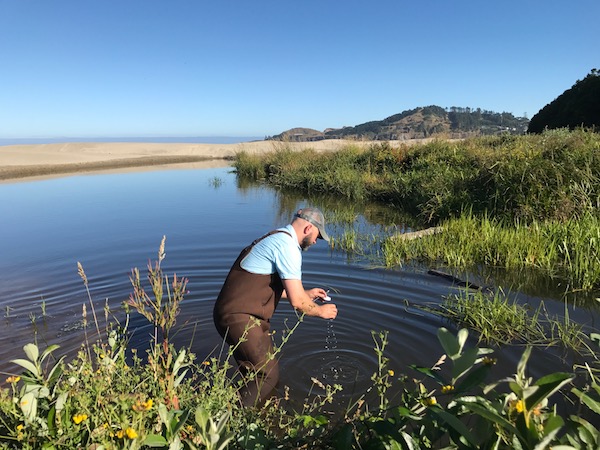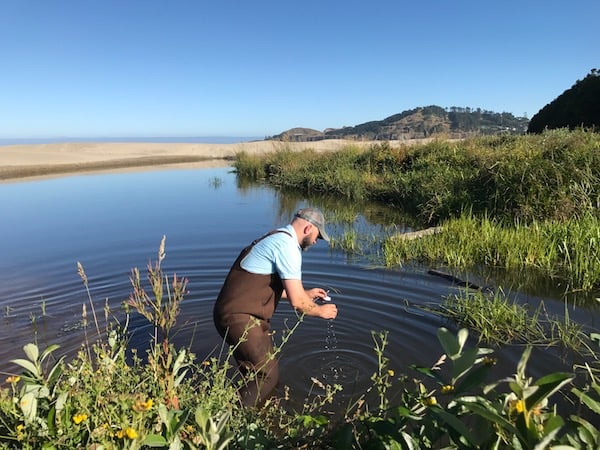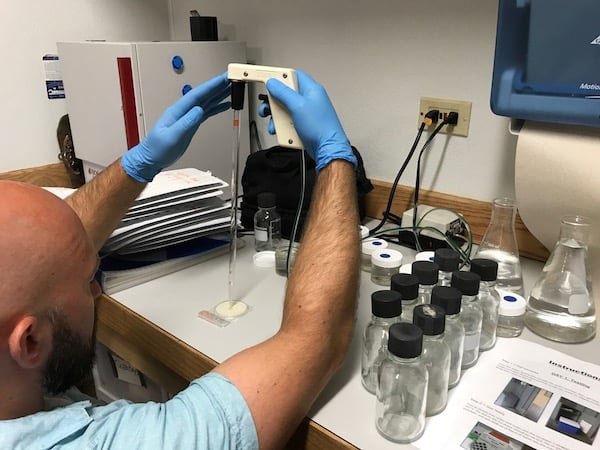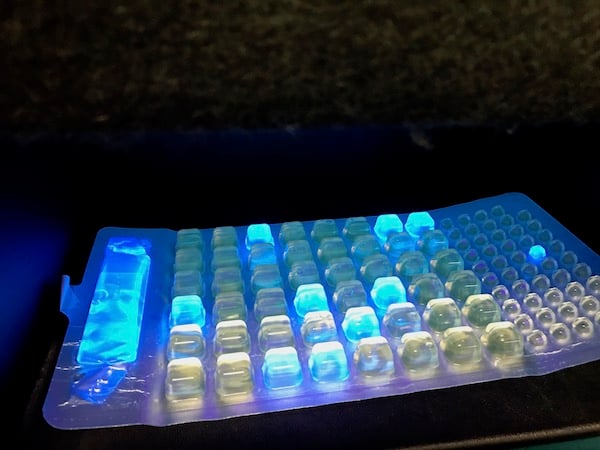
This summer, our Newport Chapter's Blue Water Task Force (BWTF) water quality monitoring program is teaming up with Surfrider chapters and leaders in Hawaii and Puerto Rico as part of a research study to compare new methods and technologies for detecting bacteria in recreational waters. Surfrider's Newport Chapter BWTF program has been in place for 15 years informing both local citizens and City and state officials about high concentrations of bacteria, and the associated public health risks, in ocean and waterways of popular recreational beaches. This new study, replicated in three different states with very different ocean conditions, will compare our traditional EPA-approved methods against a new method that may prove more cost and time efficient for our volunteers, while still acceptable to local government criteria.
 Graduate student Brian Schlottmann collects water quality samples from Big Creek outfall at Agate Beach in Newport, OR
Graduate student Brian Schlottmann collects water quality samples from Big Creek outfall at Agate Beach in Newport, OR
Dr. Carl Berg is leading up the project from Surfrider's Kauai Chapter, coordinating the effort between all three states with robust BWTF programs. Carl is a research scientist that's been working on water quality issues in Hawaii for more than 20 years and active in coral reef research, watershed management, and issues relating to global climate change. He has been working with Surfrider chapters, doing water quality testing for about 10 years. Carl conducted the first leg of the study on Kauai with, as coincidence would have it, a graduate student (Rachel Smith) from Oregon State University!
 Brian conducts sample analysis in the lab
Brian conducts sample analysis in the lab
Closer to home here in Newport, Brian Schlottmann, a graduate student from George Washington University Public Health Program, is running the local leg of the study in partnership with the Newport Chapter and the Oregon Coast Aquarium. Brian's interest and background in epidemiology lent himself as an ideal candidate for helping lead the project with local partners. For this portion of the project, he will be conducting 50 water quality samples over the course of 3 weeks at local beaches in Newport, using both the "new" and our traditional EPA methodologies. Youth volunteers at the Oregon Coast Aquarium that generally help with BWTF sampling efforts on Saturdays will be able to shadow Brian during the study, to learn about how scientists test new technologies!
 Our traditional method reveals results through use of a UV lamp and fluorescing wells that correspond to "positive" bacteria colonies
Our traditional method reveals results through use of a UV lamp and fluorescing wells that correspond to "positive" bacteria colonies
We're thrilled to be partnering on this effort and by now you may be asking yourself, what's this new technology and method for testing bacteria? The skinny on that is that Dr. Berg intends on publishing this study later in the year, so we're trying not to say too much about it till then:) More to come!
